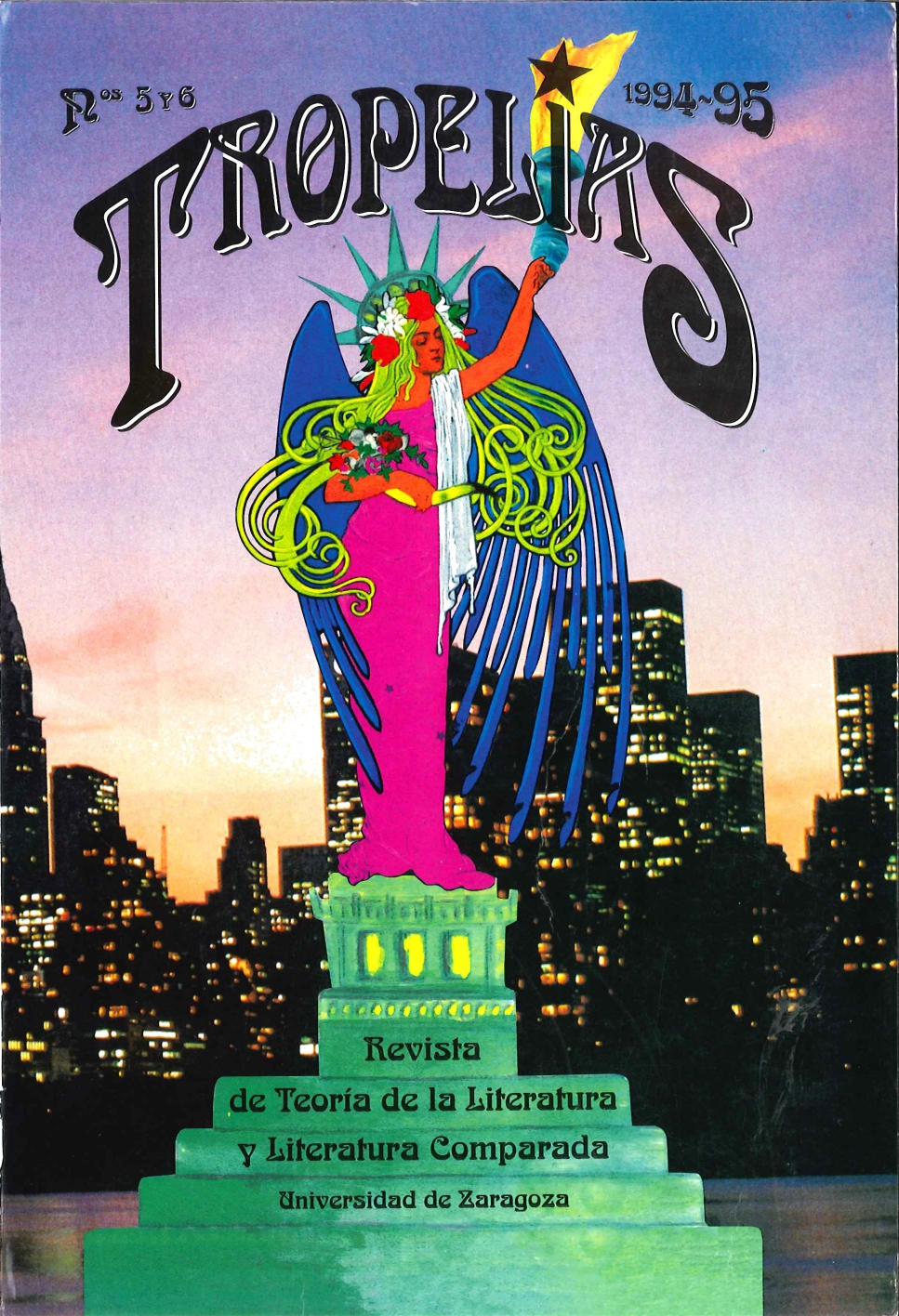Metafiction and metafictions: on concept and typologies
DOI:
https://doi.org/10.26754/ojs_tropelias/tropelias.19955-65572Keywords:
Theory of fiction, metafictionAbstract
Narrative self-consciousness has been one of the most defining features of twentieth-century novel, aIthough its critical analysis did not begin until the second half of the century. In fact, the term metafiction sprang up in 1970, when William H. Gass used it for the first time. From then on, a number of attempts to define and categorize metafictional novel have followed one another. This essay reviews the main ones and proposes four basic aspects to be taken into account in order to elaborate a typology of metafictional forms: (1) distinction between metaleptic and non metaleptic forms; (2) provisional discarding of covert metafiction; (3) an approach to non metaleptic forms; and (4) delimitation of the meaning of three adjectives currently used as synonymous: self-consciousness, self-referential and self-reflexive.
Downloads
Downloads
Published
How to Cite
Issue
Section
License
Copyright (c) 2021 Domingo Ródenas de Moya

This work is licensed under a Creative Commons Attribution 4.0 International License.
Los artículos enviados a la revista Tropelías deben ser originales e inéditos, no publicados previamente en cualquier soporte. Únicamente se aceptará material publicado total o parcialmente con anterioridad, o que esté en proceso de evaluación en otra revista, si se hace constar la causa de tal duplicación y se facilita la fuente donde ha aparecido dicho artículo.
Las imágenes que se incluyan en los artículos estarán libres de derechos de reproducción y, en caso contrario, los autores deberán presentar los permisos para su publicación y asumir los pagos derivados de ello.
Los artículos y reseñas publicados en la revista Tropelías pueden ser incluidos en repositorios temáticos o institucionales desde el momento de su publicación, sin modificación alguna e indicando claramente su procedencia.


